…In Which I Attempt To Read My Water Bill
Failure To Install Smart Water Meters Is Wasting Billions of Gallons Each Year
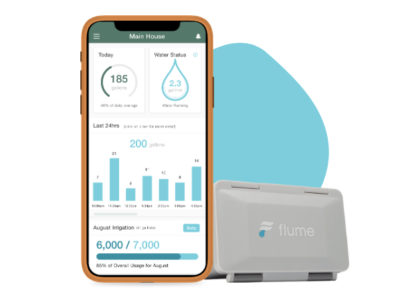
I felt at least decently about myself when I paid my water bill recently, because I was told that my usage was somewhat better than other people in my neighborhood (which is a low bar, but you take what you can get). But when I tried to figure out why it was better, I got no information whatsoever. That’s a huge problem. Michael E. Webber, in his fantastic book Thirst for Power: Energy, Water, and Human Survival, puts it well. Imagine, Webber suggests, if you were
shopping for groceries, but with no prices on any of the food items. With no price signal to steer our behavior, we would load up our carts with whatever looks appealing – steaks, specialty chocolates, and other high-priced items – leave the store, and take the groceries home, repeating that cycle twice weekly. We might even buy more than we need, throwing away the rest since for all we know it’s free. At the end of the month, the grocery store would send us for all the food we had purchased. Imagine our sticker shock when we see the tally. If we had price information for each individual food item, then we could shop in a more intelligent way, buying only what we need, wasting less, and prioritizing the more affordable items.
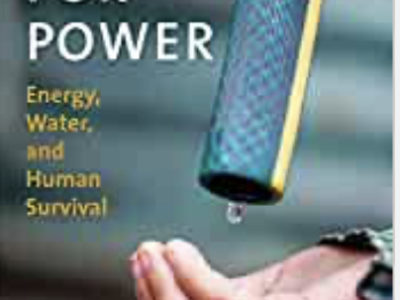
Webber notes that such a scenario is “preposterous,” but it is what we do with water (and really with gas and electricity as well). You can’t argue for pricing utilities unless people get the price signal, but that is what we do.
So why do we do it? For a long time, I suppose that the answer was technical: we simply lacked the technology to provide real-time usage and pricing of water use. Or perhaps we had it but it was so cumbersome and difficult to use that we could do it.
That is no longer the case. Smart water meter technology exists that can measure on a real-time basis a home’s water use.
My original version of this post was a castigation of the Los Angeles Department of Water of Power for not installing these things in every home in the city: we are in a long-term water crisis, and we can’t even tell people whether they are wasting water?
Using cutting-edge research, however, I surfed the web, and discovered that LA DWP is moving in that direction already:
Los Angeles Department of Water and Power officials on Thursday offered to pick up much of the cost for outfitting single-family homes in the city with monitoring devices that could help customers find ways to save more water in their daily lives….
Officials said customers can sign up to receive a device called a “flume,” which straps onto a house’s water meter and feeds data on a customer’s water use to a smartphone app.
The hourly readouts offer users information about their own water use that would never show up on a bimonthly bill.
“It’s helped us sometimes if a toilet handle is stuck and you don’t know that for a couple days,” said [then-Mayor Eric] Garcetti, whose official residence is outfitted with a similar device. “It’ll tell you, ‘Something’s off and you’re using a little too much water.’ It’ll let you know if a pipe’s leaking.”
A leaky pipe might not seem like a lot, but according to EPA, “[h]ousehold leaks can waste more than 1 trillion gallons annually nationwide. That’s equal to the annual household water use of more than 11 million homes.” We cannot afford to waste that water.
Usually these devices run about $199, but DWP will sell them to single-family home consumers for $49, plus a $25 rebate. So I bought one.
I still think it is inadequate: smart meter systems should be installed in every home everywhere, with real-time information being made available to the water department. That is the way it is done in Israel, and it saves billions of gallons of water there each year.
As always, the problem is politics: given that the Right has decided that the mildest suggestions about gas stoves represent the coming of tyranny, the idea that even the local water department would know when you are wasting water might be a bridge too far.
But it is coming. Water is a public resource and public property: we cannot allow conspiracy theorists in the fever swamps to dry up our ability to save water and adapt to climate change.
Reader Comments
2 Replies to “…In Which I Attempt To Read My Water Bill”
Comments are closed.




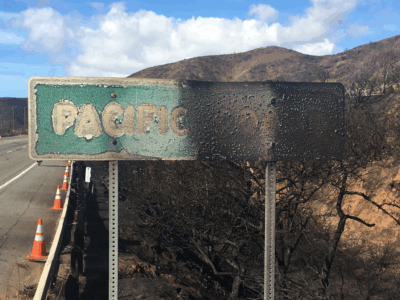
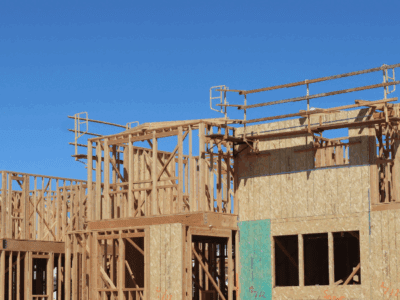
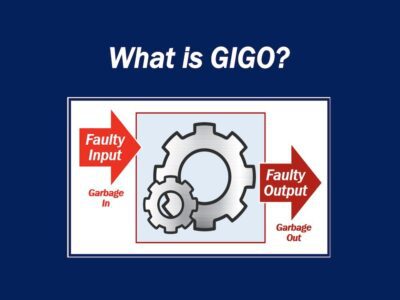
California electric utilities installed smart meters 15 years ago. The purported benefits were based on a large proportion of customers adopting some form of real time pricing (critical peak pricing (CPP) was expected to be popular). 15 years later only 2% of customers are on this type of pricing, and the economic benefits haven’t arrived for customers. (Ahmad Faruqui who testified on behalf of the utilities on this matter has written extensively recently about this failure.) It turns out that residential customers aren’t interested in minutely managing their energy (and water) use based on fluctuating prices. In addition, water prices will never vary more frequently than seasonally because it is easily stored (unlike electricity). We don’t need smart meters to vary prices by season. (LADWP has whole ‘nother huge billing problem that smart meters won’t fix.) Even then there’s a political problem in setting up seasonal prices. The Blue Ribbon Panel that proposed such pricing in 1994 for LADWP faced such resistance. Don’t short for the technological “moon shot” as the solution when the real problem is limited consumer attention. (That said, I used by local smart meter to detect a very large leak.)
I don’t have a position per se on smart meters – maybe they’re not the worst thing ever.
I think leak detection is the way to sell those things – and in fact, I’d love it if DWP wanted to help us afford the kind you put on your appliances. Water leaks can be $$$.
As for price signals, well … I have a problem with that because they won’t work on rich people, and they may work too well on poor people. I know economists love to speculate about all this – but in reality, very few people are going to deliberately waste food.
And if the situation is really so dire, then obviously we shouldn’t be having more people live here.